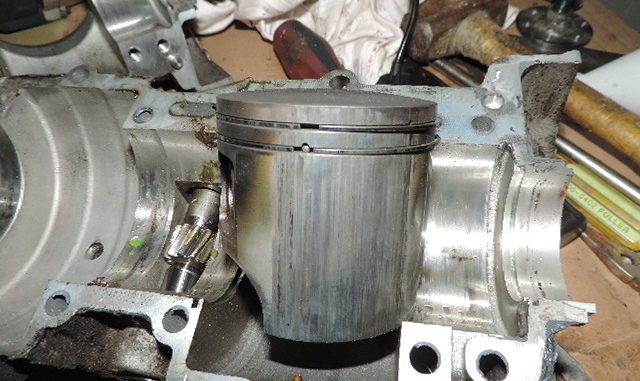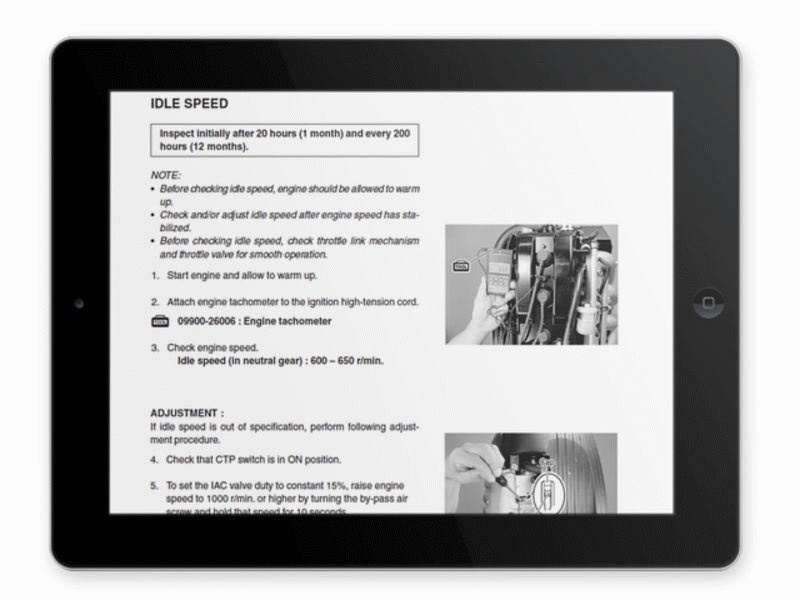
1999-2000 Arctic Cat snowmobile engine overheats refers to when the skimobile’s motor becomes too hot. Overheating can lead to serious engine problems, such as cylinder head warpage, cylinder bore damage, piston damage and other internal engine parts can be ruined in the process.
This article details the many reasons why a 1999 or 2000 Arctic Cat snowmobile engine temperature runs too hot. Keep in mind that there might be more than one malfunction that’s causing the engine to overheat.
Engine Overheats
- Spark plug heat range too hot. Install lower heat-range spark plugs. Refer to the downloadable factory service manual for spark plug specifications.
- Low coolant level or no coolant. Add coolant.
- Carburetors adjusted incorrectly, contaminated with debris or jetted incorrectly. Refer to the carburetor troubleshooting section in the download repair manual, clean carbs or jet correctly, whichever is needed.
- Carburetor-to-cylinder air leak. Replace or repair gaskets, service take ports or intake flanges.
- Heat exchangers, no snow for cooling. Select new trail, install ice studs to chew up hard packed now and ice, whichever is necessary.
- Water pump or thermostat damaged or malfunctioning. Rebuild or replace water pump and replace thermostat.
- Fuel octane too low. Use no less than 87 octane gas.
- Rings/grooves carboned. Clean or replace rings or pistons, whichever is needed.
- Exhaust ports blocked. Remove blockage.
- Muffler obstructed. Remove blockage from muffler.
- Gasoline/air mixture incorrect. Either adjust jet needle E-clip position or replace jets, whichever is necessary.
- Ignition timing improperly adjusted. Time ignition, refer to factory service manual for step-by-step ignition timing procedures.
- Oil-injection pump defective, malfunctioning or adjusted incorrectly. Either adjust oil injection pump, bleed or replace, whichever is necessary.
- Primary compression (crankcase) low or absent. Replace worn, damaged engine components or repair as necessary.
Always refer to the download repair manual when performing maintenance or repairs to the 1999 or 2000 Arctic Cat snowmobile. Failing to do so can result in serious damage to the engine or other components and cause harm to the rider.

Does this repair info apply to my 2000 Arctic Cat Bearcat 340?
The information applies to all 1999 and 2000 Arctic Cat snowmobiles:
Arctic-Cat ZR 500
Arctic-Cat ZL 580 EFI
Arctic-Cat ZR 700 LE (Reverse)
Arctic-Cat ZL 500 EFI
Arctic-Cat ZR 600 EFI LE (Clicker)
Arctic-Cat Thundercat
Arctic-Cat ZR 600
Arctic-Cat ZR 700
Arctic-Cat Z 370
Arctic-Cat Powder Special 700
Arctic-Cat Bearcat 440 II
Arctic-Cat Bearcat 340
Arctic-Cat Powder Special 600 EFI
Arctic-Cat ZRT 800
Arctic-Cat ZL 550
Arctic-Cat Pantera 1000
Arctic-Cat Powder Special 600
Arctic-Cat ZR 700 LE (Clicker)
Arctic-Cat ZR 600 EFI LE (Reverse)
Arctic-Cat Powder Special 600 LE
Arctic-Cat Panther 340
Arctic-Cat Z 440
Arctic-Cat Powder Special 500 EFI LE
Arctic-Cat Powder Special 600 EFI LE
Arctic-Cat ZL 600
Arctic-Cat Triple Touring 600
Arctic-Cat Panther 550
Arctic-Cat ZL 440
Arctic-Cat Powder Special 700 LE
Arctic-Cat ZL 700
Arctic-Cat ZR 600 EFI
Arctic-Cat Powder Special 500 EFI
Arctic-Cat Pantera 580 EFI
Arctic-Cat Panther 440
Arctic-Cat Bearcat W/T
Arctic-Cat ZRT 600
Arctic-Cat Thundercat M/C
Arctic-Cat Bearcat 440 I
Arctic-Cat ZR 500 EFI
Arctic-Cat ZL 500
Arctic-Cat ZL 600 EFI